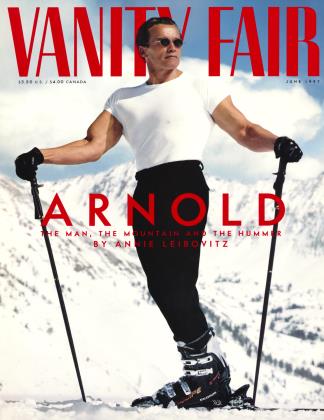Sign In to Your Account
Subscribers have complete access to the archive.
Sign In Not a Subscriber?Join NowTHE SHOCKING MR. PURDY
James Purdy's novels, dark and delicate, have won him passionate fans such as Tennessee Williams, Gore Vidal, and John Waters. As Purdy's 26th book appears in Britain, PETER THEROUX finds out why the Brooklynbased writer is barely known at home
PETER THEROUX
'Tell me something about him, what's he like? ... I would love to meet him," Tennessee Williams wrote to a New York friend in early 1957. "10," as he often signed himself, had fallen in love with the fiction of James Purdy after reading 63: Dream Palace, the story of two young West Virginia brothers who end up in Chicago. The older brother, Fenton Riddleway, is taken in by a decadent circle of socialites and actors. One night, after a couple of these young men drug and try to rape him, Fenton stumbles home in borrowed clothes and murders his younger brother, who has been ill and pining for their late mother. Fenton crates up his brother's body, kisses the "dead stained lips he had stopped," and carries it up into the attic, pronouncing the final words of the story: "Up we go then, motherfucker." (In England, Dame Edith Sitwell persuaded Victor Gollancz to issue 63: Dream Palace, but could not get the last word published; "little bugger" was substituted. Years later, she wrote a foreword to an unexpurgated version, saying that the last sentence is "appalling, but it is also full of an unutterable tenderness and a deep meaning.") Over the next four decades, Purdy produced more than two dozen books. He is widely read in Europe and has been praised by Paul and Jane Bowles, Langston Hughes, Thornton Wilder, Dorothy Parker, Katherine Anne Porter, Fran Lebowitz, John Waters, Angus Wilson, and Terry Southern.
So why is the 73-year-old novelist, with a new book coming out in Britain this month (Gertrude of Stony Island Avenue, published by Peter Owen), barely known in his own country—and without an American publisher? "I don't write for anyone. I write for the soul," says the courtly and genial Purdy, who lives in Brooklyn Heights, New York, and is philosophical about the intermittent nature of his appeal. "You are sworn to tell the truth when you write. Writers write what they see, and what they hear people say. They're not testifying. But if you don't tell the truth, you are found guilty."
"He has no category. But then, he has few peers," says Gore Vidal, adding that Purdy has no constituency either— not academia, not the gay establishment. "Their line is that fags are just like everyone else, only nicer. Well, not in Purdy's books. . . . And the hacks of academe cannot deal with originality, particularly of style." In the 1970s and 80s, Vidal corresponded with Paul Bowles about Purdy, who has the distinction of having shocked both authors—quite a feat. Purdy's books range from the gentility of On Glory's Course (he is often praised for the way he writes about women) to the debauchery of Narrow Rooms, a rustic novel of four teenage boys so preoccupied with one another that the story proceeds—in hypnotically beautiful language—from murder to graveside rape, to crucifixion, to, uh, worse. This was the work that shocked Bowles. "Narrow Rooms is a starter book I give to people of a certain type, to get them obsessed," says John Waters. "They love it or hate it. In my circle of friends, everybody reads him. Of course, I've never had my finger on the pulse of what regular people like."
Fran Lebowitz notes that Purdy "is without an era—he was way too early for his own era, and too good for this one. And not published in his own country? That's an outrage, an outrage, an outrage. It's a publisher's responsibility to publish James Purdy. Otherwise, let them go and just sell shoes." Vidal agrees: "There's something in the American air that's so sectarian, censorious, narrow, dumb—do stop me before I run out of euphemisms."
 View Full Issue
View Full Issue












Subscribers have complete access to the archive.
Sign In Not a Subscriber?Join Now